Not everybody in Honduras goes hungry, but many do. The tiny country is one of the poorest in Central America, with more than one in four Hondurans unemployed.
As part of monthly "chapel hikes" out of Soto Cano Air Base, Honduras, Soldiers, Sailors, Airmen and Marines-all part of Joint Task Force-Bravo-volunteer their personal time to bring food to families in the surrounding communities, and often sweets and toys for the children as well.
"We do the hikes so we can continue to get the message out that the U.S. military, and Soto Cano Air Base, is interested in the lives of the Hondurans locally and interested in helping improve their way of life," said Air Force Capt. Tony King, chaplain for JTF-B.
The hikes take servicemembers out to areas of the community where the services Americans often take for granted are not present-running water and sewers, to name a few.
On a Friday afternoon before one such hike in May, servicemembers gathered at the annex of the installation chapel to prepare for the event. Food (including rice, dried beans, sardines, sugar and cooking oil) had been purchased with donations from parishioners. Volunteers created approximately 200 bags containing the food staples so each servicemember on the hike would be able to carry something to waiting Hondurans.
The following morning, servicemembers gathered outside the chapel, each grabbing a bag of food to carry with them on the march. Participants included about 120 U.S. military members, about 30 from the Honduran military, and 10 representatives from nearby Comayagua City Hall.
Four busses carried the volunteers to a site roughly eight miles from the air base, where participants began a nearly two-mile hike up a mountainside to a soccer field 2,400 feet above sea level-a climb of about 926 feet. There, several hundred Hondurans from the nearby village of Planes de la Nueva Esperanza awaited their arrival.
"The higher the elevation they live in, the needier they are, the less they have," said King, who shepherded the volunteers up the hill. "That's why we are focusing on going up into the hills to deliver the food."
King said the mayor of the nearby town, Comayagua, suggested the location, as it is in his area of responsibility.
"We've asked him to help us find areas of the most needy in his area," King said. "This was the one on the top of the list."
Servicemembers lined up along the outside of the soccer field with their donations. Hondurans lined up as well, one-to-one with the volunteers, allowing participants to meet face-to-face with a Honduran head of family, shake their hand, and pass a bag of food.
Children weren't left out either. Command Sgt. Maj. Eloy H. Alcivar, the senior enlisted for JTF-B, yelled in Spanish for the "niAfA+-os" to gather near him. They too lined up and awaited treats from servicemembers. Dozens of Soldiers moved forward to provide toys, articles of clothing and candy to children bearing smiling faces and outstretched hands.
Air Force Tech. Sgt. Bill Flores, a supply noncommissioned officer in charge at JTF-B, said he attends the chapel hikes because during his time in Honduras he is reminded of his own history and that of his family in Mexico.
"Personally, I come from an indigenous background, which is what these people are, a lot of them," Flores said. "I still have family in Mexico. And I just arrived in Honduras three weeks ago. From seeing the scenery here a little bit, it reminds me a lot of how my family still lives down there-very poor. They will build houses out of pallets or anything they can get their hands on. To me, it is very personal."
Flores said joining the military has provided him with a lot of opportunities, and participating in the chapel hikes while assigned to Soto Cano is one way to repay that debt.
"I came up here to help out those that don't have enough," he said, "especially the things we take for granted-to give those things back to them-and showing them that Americans are good people, that we are here to help."
Flores sat with some of the family heads who came from a nearby village to meet with servicemembers at the soccer field. A native Spanish speaker, he said the Hondurans were thankful for the food they got from the servicemembers who participated.
"They are thankful for anything, any little thing we can give them they are thankful for," he said. One of the women there explained that the food in the village is produced by the men who live there, and while there is enough food to sustain life, the variety of what's available leaves something to be desired.
"There's enough for the year, if you want beans and corn every day," the woman said, "but no meat." Daily sustenance might include a corn tortilla with beans. For chicken, she said, they must travel fairly far, and even for chili peppers they must go to the market in Comayagua.
"There's a bus that comes through every now and then, and they will just hop on and go into town," Flores explained.
Air Force Tech. Sgt. Fernando Garcia, an air traffic controller for JTF-B, participated in several chapel hikes during his Soto Cano tour. The late-May hike would likely be his last, he said, because he was preparing for a permanent change of station. He said he brought many personal items he'd gathered in Soto Cano that he'd no longer need with him on the hike.
"I'm about ready to PCS, so I brought pretty much a lot of clothes I had in my dorm," Garcia said. "It was worth the walk, it's a little sweat to help out a couple people. Once you see the smile on the person's face, that makes it worth it. No matter how long the walk is, it's worth it."
Spc. Joseph Iwaskey, a JTF-B chaplain assistant agreed that the uphill hike was tough-but said it's for a good cause.
"Charity can be rough," he said, "but it was worth it. It's a good cause, and I wanted to help the Honduran people-to bring them food. This kind of charity doesn't happen a lot for them."
Chapel hikes aren't the only kind of charity that happens out of Soto Cano, King said. And Honduras is an area ripe for opportunity to do good work.
"There's a lot of different needs out there. Not just food, but construction projects too-Habitat for Humanity is big, so I plan on helping with that," he said. "There's a lot of opportunity here, and the Honduran people are friendly and they are open to the help and that's good."
Although the food delivered to Honduran villagers during the hike was purchased from money donated during chapel services at Soto Cano, the hikers themselves weren't necessarily chapel-goers, King said-an indication that the willingness to help runs across the spectrum of belief systems.
"We got a lot more people that show up to this than what show up to regular services," King said. "Regardless of their religion or their religious beliefs, I think military members and Americans generally have a desire to help people."
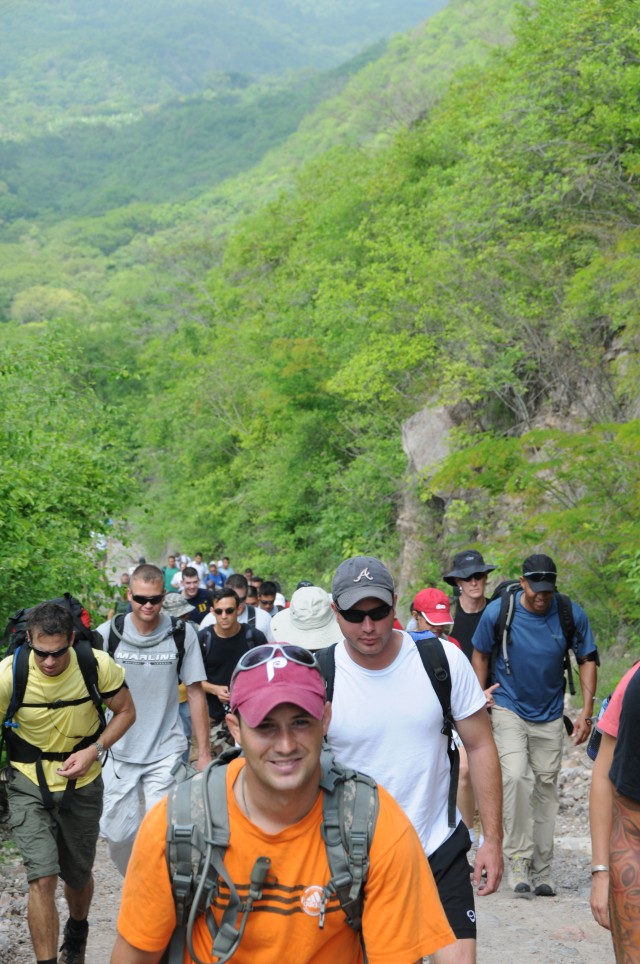
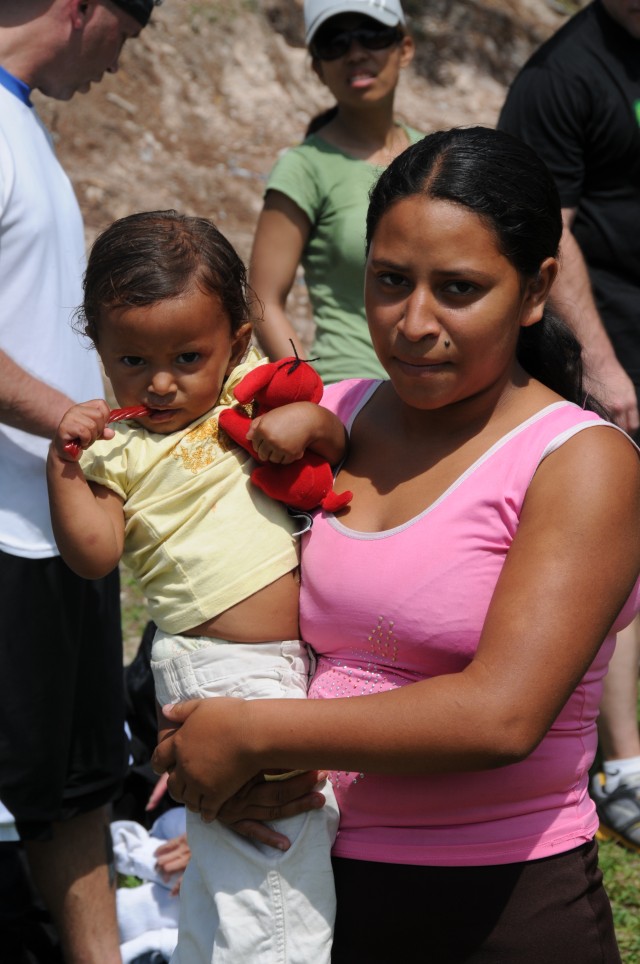
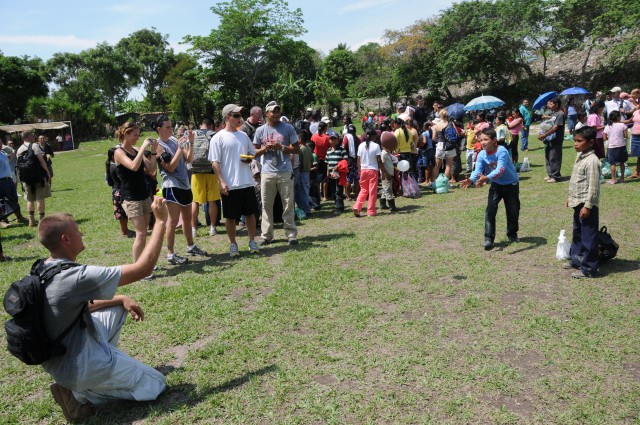
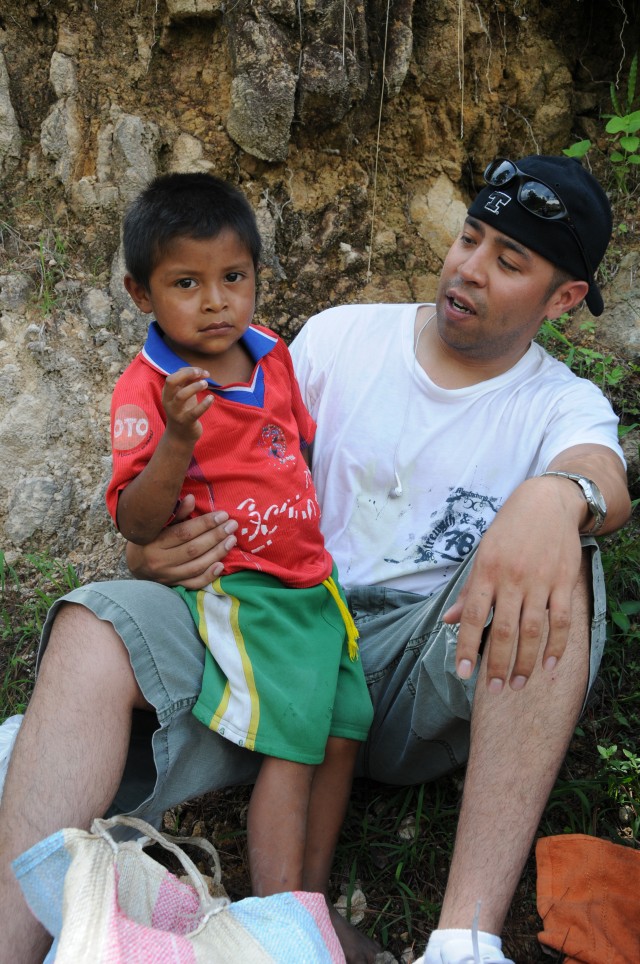
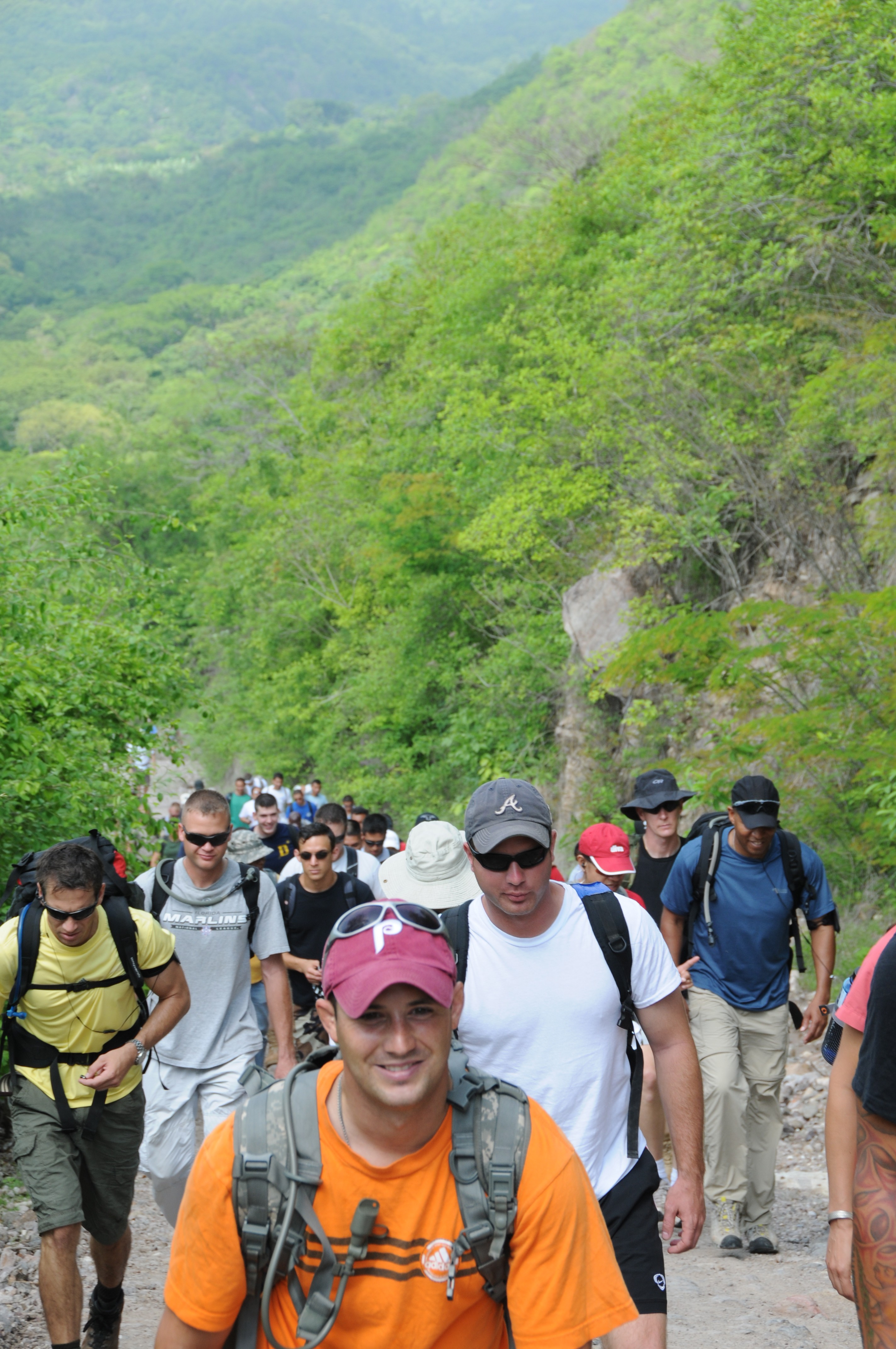
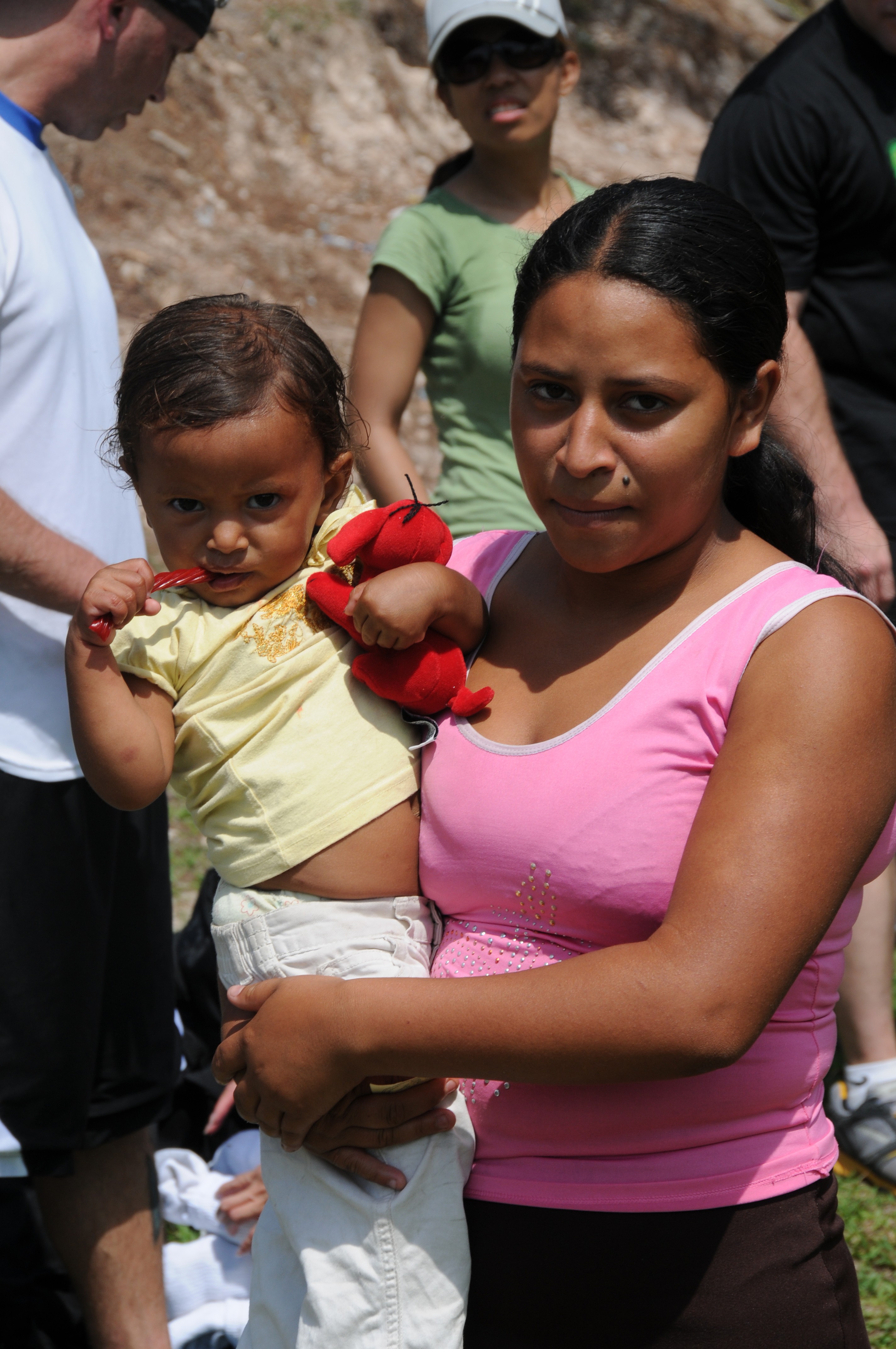
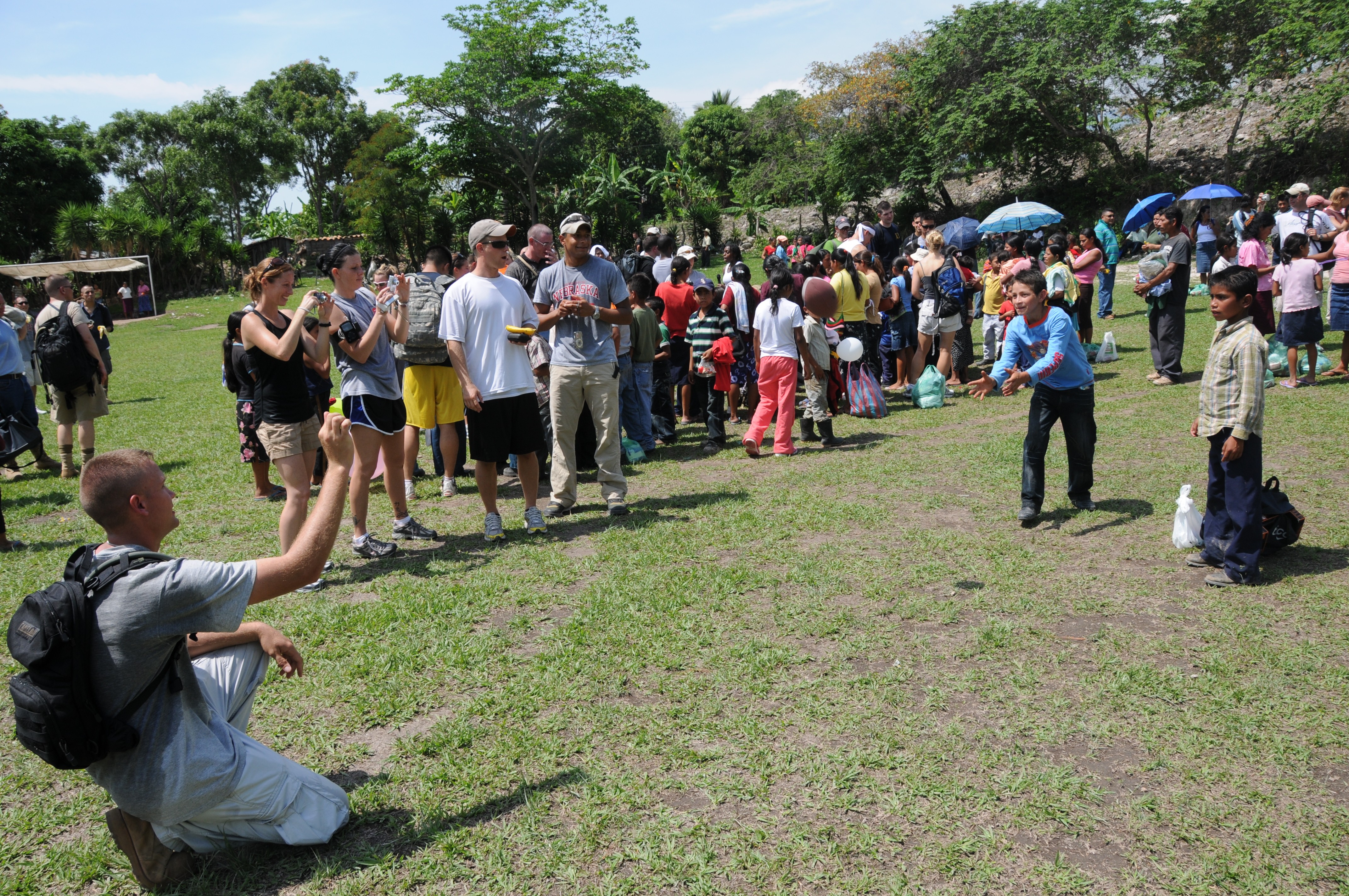
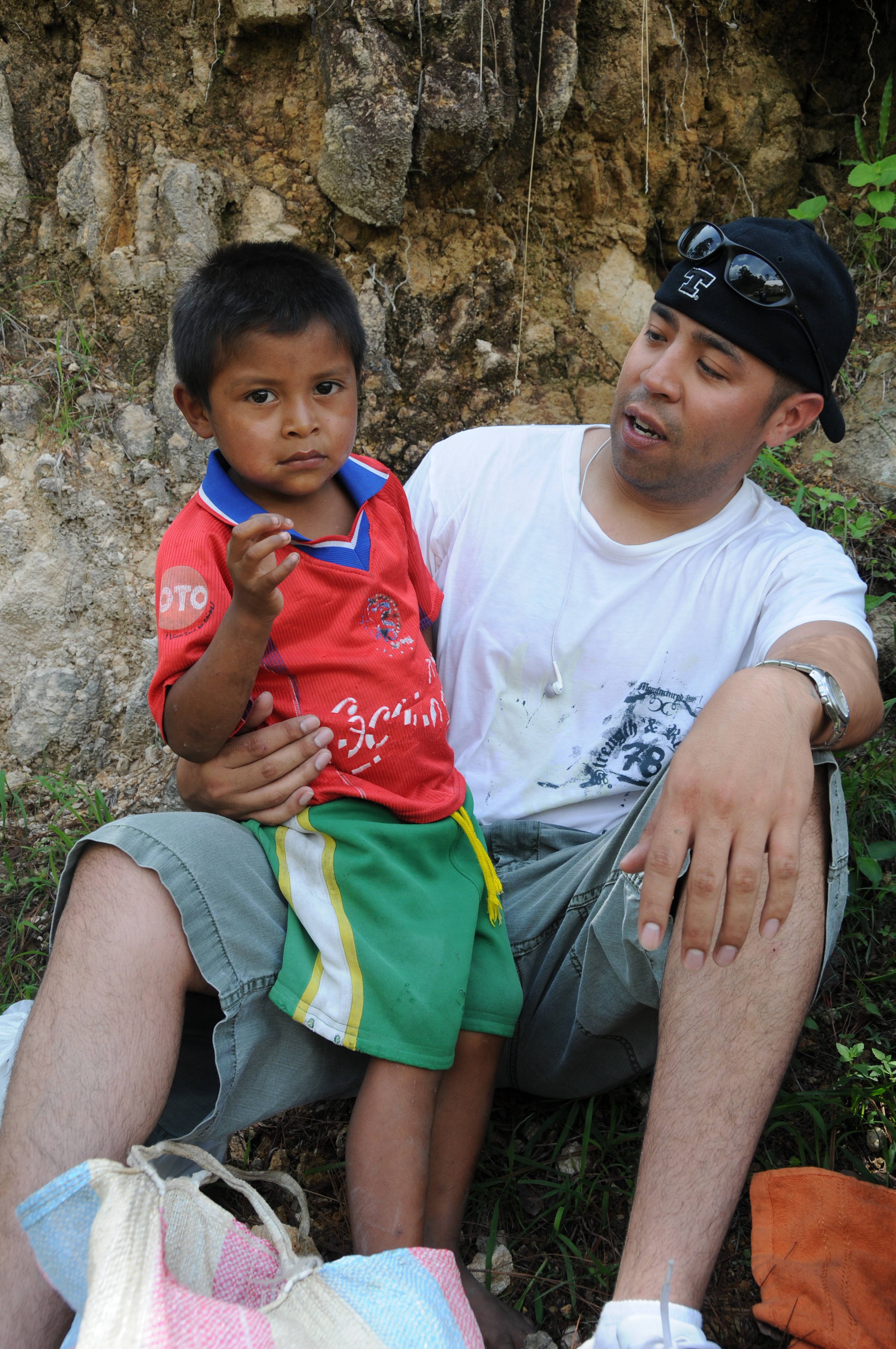
Social Sharing